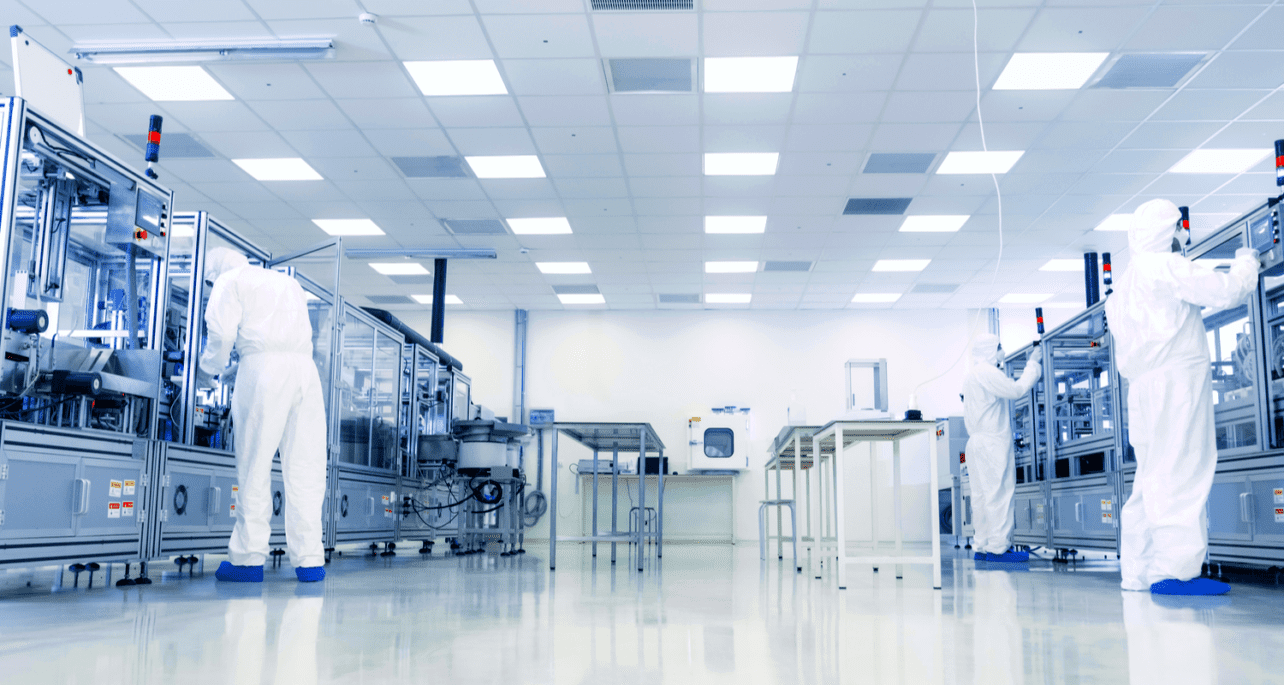German Chancellor Olaf Scholz asserted at a recent summit that Germany could become the EU’s largest producer of semiconductors. He attributed his statement to the significant investments made in the industry as of late. Scholz, who emphasized that Germany is working hard to increase its semiconductor production, said that the investments create “an ecosystem that helps the serenity of the European Union, that we are not dependent on other regions”.

Countries and companies are committing vast sums of money to semiconductor production and research. Investments are expected to amount to more than half a trillion dollars over the next ten years. Germany’s chip production ambitions are helping attract more and larger investment projects as the continent seeks to establish security of supply and technological sovereignty into the future. Some of the largest companies stepping in are Intel, Bosch, Globalfoundries, Infineon
Intel
US-based semiconductor manufacturer Intel officially announced Magdeburg as the location for its new European semiconductor production facilities in March 2022. It’s the largest-ever foreign direct business investment in the country and in Europe as a whole. Intel will initially spend EUR 17 billion on its new location but could put around EUR 80 billion in its European operations, if it builds all of the construction facilities – or “fabs” – that are planned.Ask Intel and others - Germany is Europe’s new microchip mecca
screenshot_intel-video
Bosch
Bosch has invested EUR 1 billion production facility in Dresden. The plant is Europe’s first fully digitalized semiconductor production facility. The project, first announced in 2018, will see auto chips and sensors manufactured at the Saxony site. Bosch received EUR 140 funding for the project as part of the “Important Project of Common European Interest: Microelectronics” initiative.
Investment into new fab: ~ 1 billion EUR, 700 new jobs, biggest investment in Bosch history
1st Bosch chip factory equipped with 5G
Applications: autonomous transport systems via local cloud, remote access to plants, M2M communication
Globalfoundries
US chip manufacturer Globalfoundries has announced plans to more than double capacity at its Dresden site – increasing production from 400,000 wafers to more than one million wafers annually. This represents an investment of more than EUR 1 billion.
Planned investments in coming years: 1.1 – 2.4 billion EUR
Local demand for power electronics in automotive, mobile chips due to 5G, industrial use chips and sensors
Infineon
Infineon plans to invest up to EUR 2.4 billion at its Dresden site over the coming years to meet demand for power electronics in auto, mobile chips for 5G, and industry chips and sensors. The company has submitted proposals as part of the microelectronics IPCE, with the scale of the fourth factory module investment subject to government subsidy commitments.
Investment of > EUR 1 billion into existing fab announced Feb 2021
Local production: audio converters for cell phones, driver chips for OLED screens, electronics for voice recognition systems
Where the investments are headed
The main aim of investments is to guarantee the chip supply and expertise required to support increasingly data-driven industries. By building out supply chains, companies and governments attempt to ensure that essential electronics are always available.
Some concerns have come up as of late. There is a need to fill the talent gap, prevent inefficiencies and deal with an almost inevitable glut that could lead to inventory write-downs and price wars down the line.
Europe is concerned with multiple critical issues in the short term: being careful when dealing with China, building out semiconductor production capacity and promoting technological sovereignty.
Germany treads carefully
Back in November, we reported that Chancellor Scholz advocated for a change in how Germany deals with China, which is increasingly leaning towards a Marxist-Leninist political ideology. Although Scholz expressed concerns about China, the chancellor emphasized that Germany would not abandon its relatively friendly relationship with the country.
The EU as a whole has thrown its weight behind the US, citing security risks as grounds for preventing China from buying key supplies and participating in the deployment of 5G infrastructure across critical regions. Germany will continue to do what it can to bolster its economy, and if that brings semiconductor manufacturing to Europe at scale, the bloc will be better for it.







